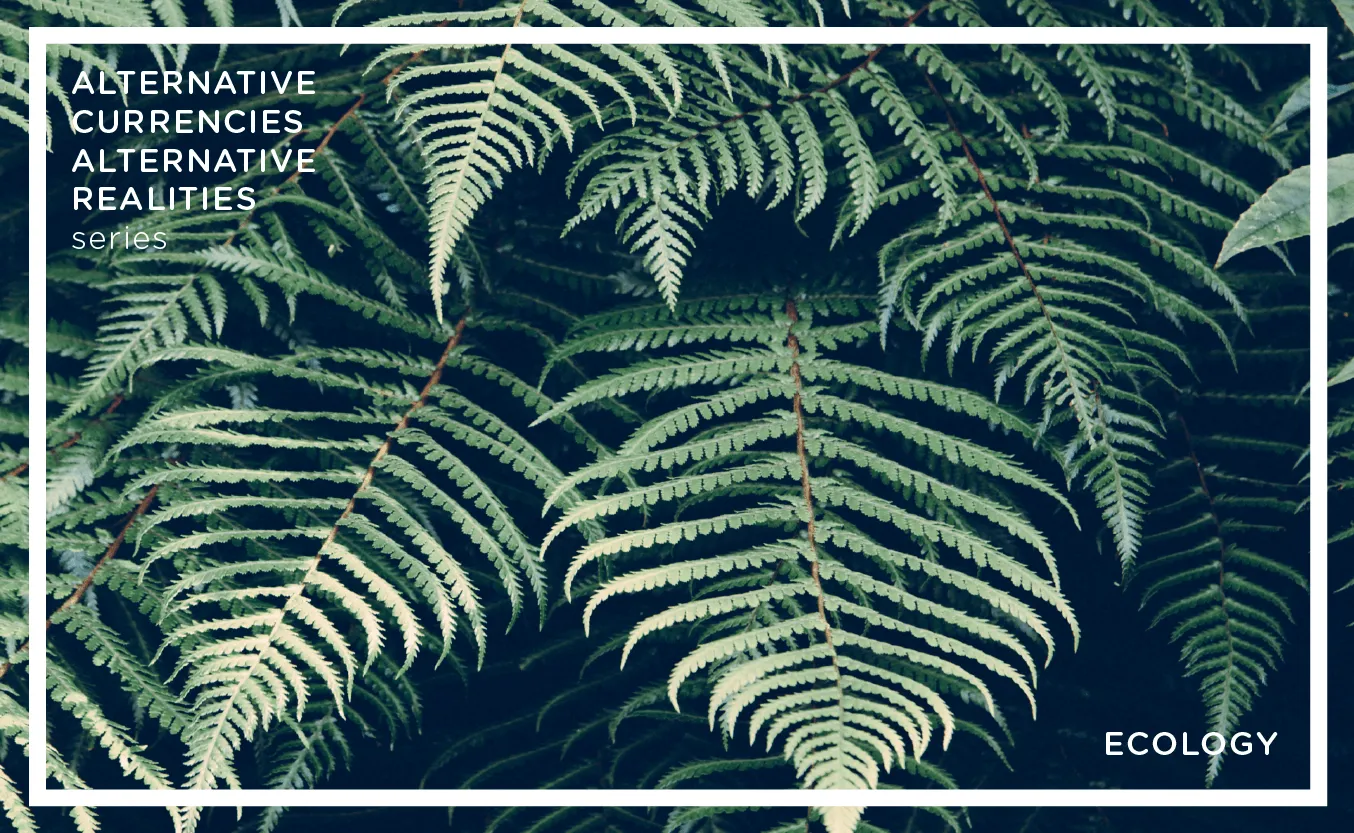We live in an unprecedented time where our economy seems to take the center stage of in our lives. Unfortunately our economy is constructed in a way that is simply incompatible with our ecology. You could say that the system, and all of its moving parts, have been poorly designed. What if we could redesign the system to work for humanity and this planet we call home? How can we truly value our biosphere before we lose it forever? And how would a currency for the environment work?
For decades, economists have argued that prosperity requires growth, with environmental damage as the regrettable but unavoidable consequence. Though new voices are emerging, it seems like we have been listening to the same story for some time now: keep shareholders and owners happy by maximising profits at all costs, often planning in the short term and ignoring long term consequences. Lucky for companies, they never have to pay the full price of their business thanks to a thing called external costs or externalities. That is, they are external to the cost of business and can be negative or positive but work in favour of the business and affect a third party (e.g. citizens). For example a negative externality is the creation of air pollution through burning fossil fuels. A positive externality on the other hand is carbon sequestration by trees. This is where trees take carbon out of the atmosphere and store it for a long time.
If you think about it, our environment is like an angel investor in the global economy, secretly supporting many industries. For instance, the global pharmaceuticals industry is worth billions of euros but few know that up to 50% of this market is based on the genetic diversity of wild species. Forests are another great example of nature's secret investment into humanity. Not only do forests store carbon, they also provide medicine and food for us to consume, can protect our cities from natural disasters and are home to thousands of other creatures, many not even discovered. And yet we only value the forest within our economic system when it is cut down and turned into a raw material.
There are bureaucratic ideas to value our environment but these have some considerable drawbacks. Ecosystem services is a framework built upon the idea of "natural capital" whereby every service provided by our environment is given an economic value in euros and cents. However there has been strong resistance to this commodification and price tagging of nature. How do you work out the value of an inspiring walk through the forest or the sound of birds tweeting? There is also a bigger danger that the price of the ecosystem will be superseded and so replaced: the lake is worth €10 million, but if we replace the lake with a road that has a value of €11million then goodbye lake, goodbye fish, insects and biodiversity and goodbye environment. Carbon trading, another idea to protect the environment, is in effect a way to cap and trade pollution with the goal to reduce the amount of emissions in the coming year. The idea has good intensions but at best can be bureaucratic and slow to enforce and at worst simply moves the problem elsewhere. Both these solutions are top down and designed in a way to limit damage. They are there to negatively reinforce people to not do bad. But what if we flipped that idea on its head and instead positively incentivised people to do good? If you can make money cutting down a tree why can't you make money planting one?
There are many ways in which we can incentivise behaviour, probably the most powerful and ubiquitous is money. Our fiat currencies, such as pounds euros and dollars, incentivise billions of people around the world every day. It seems then only logical that we should design a new currency to both value and reward environmental action. Here at Next Nature Network we're doing exactly that. We call it the ECO coin.
The ECO coin is designed to be a community led positive solution that rewards humans anywhere actively contributing to a more sustainable world. It works on both a community and global level. Communities can decide what behaviours and actions they reward with ECO coins to make the currency context specific. For instance, if a community wants to encourage more people to ride a bike they can pay all bike riders ECO coins. These can then be spent at the local market to buy organic vegetables. Or you could earn ECOs at a music festival by recycling plastic cups which you could spend on a yoga workshop. You could even build a well needed bee hotel, earn ECOs and spend them on downloading the latest Bee-yonce song. The more ECO coins in use the more powerful and useful the currency becomes. In the future the ECO coin will use blockchain technology to make the currency scalable, decentralized and as fair as possible. The goal is to value and reward environmental action. This is how we design an economy of ecology.
This concludes the Alternative Currencies, Alternative Realities series. To find out more about the ECO coin please visit ecocoin.com.


Comments (0)
Share your thoughts and join the technology debate!
No comments yet
Be the first to share your thoughts!